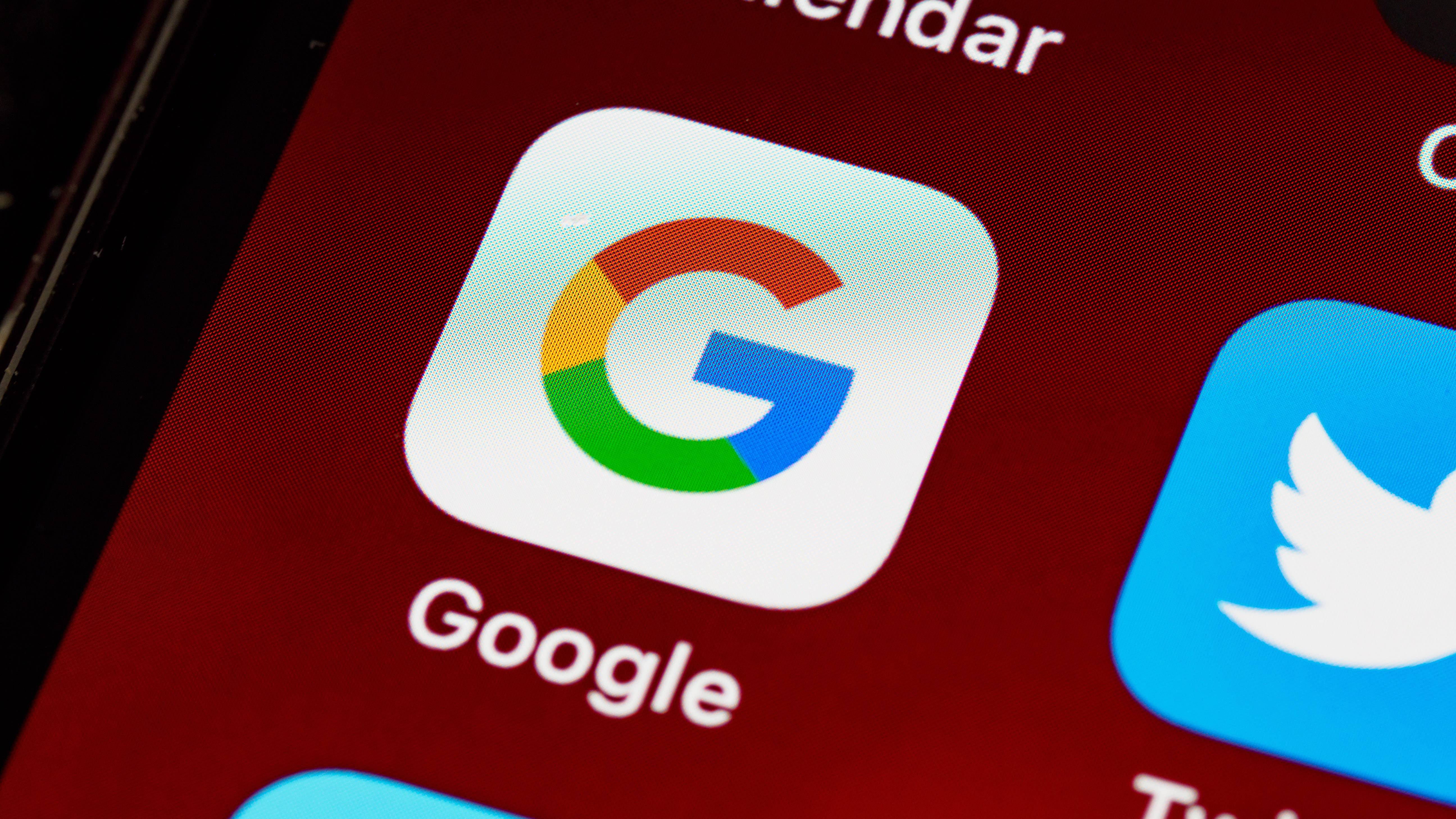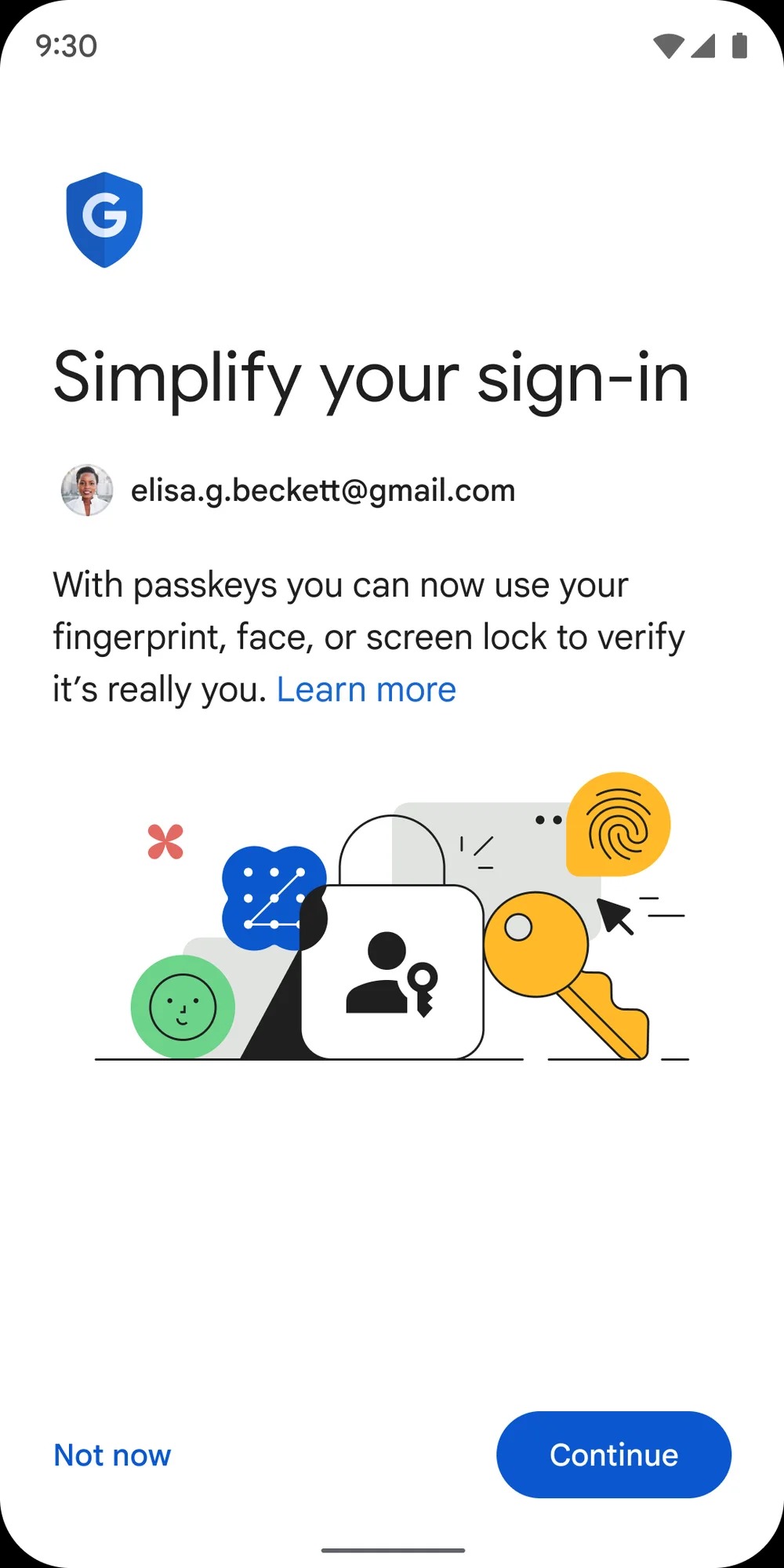Google wants you to ditch your password — passkeys are the new default
A passwordless future... Color us intrigued

Earlier this year, Google made a huge step towards a "passwordless future" and introduced passkeys, which are more secure, faster to use, and easier to remember than traditional passwords. A passkey could be your PIN, face, or fingerprint used to unlock your device.
Starting today, passkeys will be the new default (via The Verge). Google users will be prompted to create a passkey for their account if they haven't already, making it easier to switch from password to passkey.
If you're not ready to make the change, don't worry. Although it's an industry-wide goal for passkeys to eventually phase out traditional passwords, Google says that "new technologies take time to catch on — so passwords may be around for a little while." You can opt out of creating a passkey, and stick with your trusty password for now.
What makes passkeys more secure?
Alongside Apple and Microsoft, Google announced last year that it would support a new sign-in standard that was created by the Fast IDentity Online (FIDO) Alliance to embark on a journey towards a password-free future. Google says "this joint effort to create a safer alternative to passwords is rooted in passkeys."
Put simply, "a passkey is a FIDO credential stored on your computer" that you use to unlock your online accounts. Because a passkey requires proof that you are who you say you are, it's much safer than a traditional password.
Traditional passwords typically contain pet names, important dates, family member names, or favorite books, sports teams, or movies—this is all information that can easily be guessed for malicious reasons or forgotten by the user over time.
To combat the vulnerability of traditional passwords, we've seen fixes like multi-factor authentication or authenticator apps. Google thinks passkeys will replace traditional passwords and all the extra security measures placed on top.
Stay in the know with Laptop Mag
Get our in-depth reviews, helpful tips, great deals, and the biggest news stories delivered to your inbox.

You can have more than one passkey on multiple devices, and you don't have to worry about someone else gaining access to everything that requires a passkey on your device if you lose it because your passkeys are only useful to you. Google says passkeys "authenticate that you are in posession of your device, and that you are the one accessing your account."
Passkeys are phishing-resistant and 40% faster to use than traditional passwords. Plus, you'll never have to remember which numbers or special characters you added to your password to make it different from your previous password.
If you haven’t been prompted yet to switch from your old password to a new passkey, check out our guide on how to use passkeys to sign into your Google account to manually make the switch.

Sarah Chaney is a freelance tech writer with five years of experience across multiple outlets, including Mashable, How-To Geek, MakeUseOf, Tom’s Guide, and of course, Laptop Mag. She loves reviewing the latest gadgets, from inventive robot vacuums to new laptops, wearables, and anything PC-related. When she's not writing, she's probably playing a video game, exploring the outdoors, or listening to her current favorite song or album on repeat.










